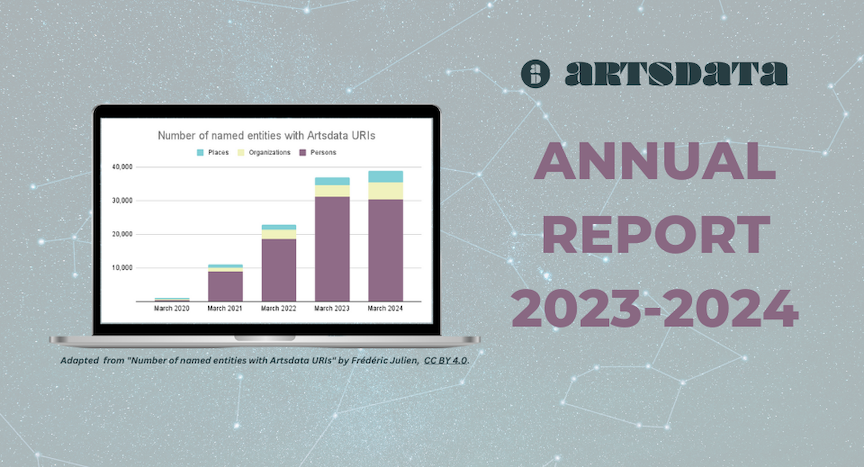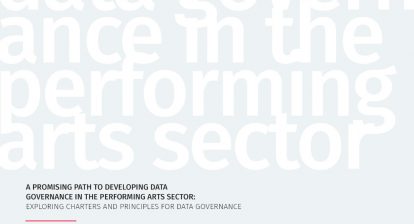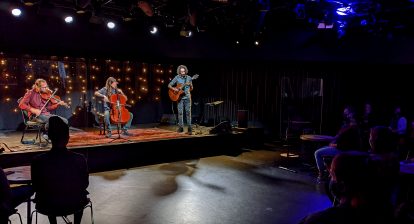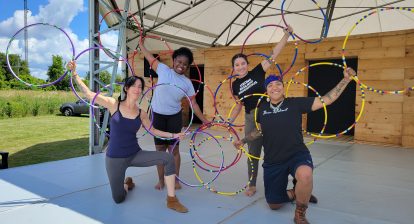2023-2024 was a pivotal year for the Artsdata knowledge graph. Following seven years of development, jointly led by multiple partners and parallel initiatives, former projects dia-log and Linked Digital Future have merged with Artsdata (originally stewarded by Crow’s Theatre) to form a new project. Artsdata is still operated outside of a dedicated organizational structure. However, management responsibilities have been formally delegated to CAPACOA by the Artsdata Community Group. This group acts as a governing body, consisting of data providers and data consumers.
Just as a solar system pulls other planets into its orbit, the Artsdata community has pulled in cultural calendars, member directories, industry platforms and individual arts organizations’ websites as it grows. The outcome may not yet resemble a constellation of stars. But it truly does have the potential to light up the sky for the performing arts.
Highlights from the past year:
- Artsdata received multi-year funding from Canadian Heritage and from the Canada Council for the Arts. One of the main goals for this funding cycle is to grow and strengthen the community surrounding the Artsdata knowledge graph. Consequently, we formally announced the Artsdata project in October 2023.
- We launched a new Artsdata website, complete with a new logo and a new search interface called Nebula. This interface enables both human and robot users to browse data records, crawl links from one record to another and view data from external sources.
- Thanks to funding from the Government of Canada via the Community Services Recovery Fund, consultants analyzed the data models of four industry platforms: Scènes francophones, Scène Pro, I Want To Showcase, Arts Touring Connector.They also supported Scènes francophones in their implementation of an open data strategy and in the upload of their data to Artsdata.
- Artsdata had 90 data sources at the end of the year. Because we now use a new method to count data sources, indicators from previous years are not comparable.
- The number of organizations and places in Artsdata grew 45% and 49%, respectively.
- At the end of the year, there were 6,176 upcoming events in Artsdata (78% more than last year).
- We started minting persistent Artsdata IDs for events. This is proving to be a robust solution to the ephemeral nature of event URLs (and of the associated metadata).
- Action research activities around Indigenous knowledge continued with the delivery of a presentation on “Indigenous Artists and Wikidata” at WikiConference North America, as well as the creation of an Indigenous Librarian position.
- Artsdata resumed the Digital Discoverability Program. We expanded the range of services to include analyses of artist/member profiles, chiefly in an effort to include agencies, management companies and arts service organizations. 23 organizations participated in the program. Of these, three have already implemented one or more recommendations in order to improve their discoverability or to make their data reusable via Artsdata.
- Community building and data literacy activities reached a total of 784 participants. This number includes the Matinées numérique, a series co-hosted with several partners.
- The Artsdata Community Group welcomed two new members, growing from 9 to 11.
Read the full Annual Report.

If you hold – or need – information about the performing arts, get in touch with the Artsdata team. There’s a place for you in the constellation!
This project is funded by the Government of Canada and by the Canada Council for the Arts.









